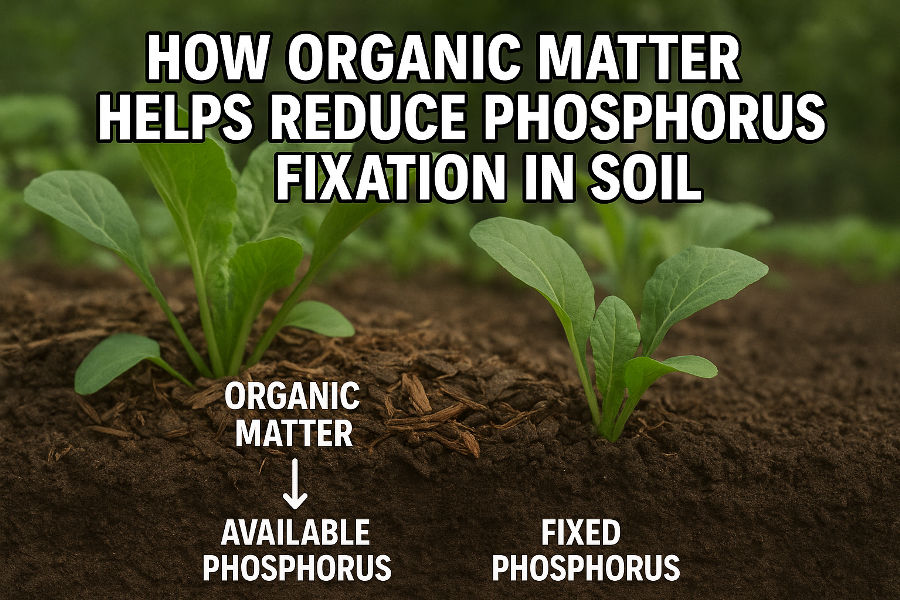How Organic Matter Helps Reduce Phosphorus Fixation in Soil
Phosphorus is one of the most important nutrients for plant growth. It plays a key role in root development, flowering, and fruit setting. However, in many Indian soils, phosphorus becomes unavailable to plants shortly after application. This is due to a common issue known as phosphorus fixation.
Let’s understand what it is and how organic matter can help solve this problem in a natural and sustainable way.
What is Phosphorus Fixation?
When you apply phosphorus fertilizers to the soil, not all of it goes to the plants. A large portion of it reacts with minerals in the soil – like iron and aluminum in acidic soils, or calcium in alkaline soils – and forms compounds that plants cannot absorb. This process is called phosphorus fixation.
In simple words, the phosphorus gets “locked” in the soil and becomes useless for the crop.
Role of Organic Matter in Reducing Phosphorus Fixation
Organic matter, whether it comes from farmyard manure (FYM), compost, crop residues, or green manures, can play a big role in keeping phosphorus available to plants. Here's how:
1. Ties Up Fixing Elements
Organic matter contains compounds like humic and fulvic acids. These can bind with iron, aluminum, and calcium in the soil. When these elements are tied up, they can't react with phosphorus easily. As a result, less phosphorus gets locked up.
2. Releases Organic Acids
As organic matter decomposes, it releases mild organic acids such as citric and oxalic acid. These acids can help dissolve the fixed phosphorus compounds, making that phosphorus available again for plant roots to absorb.
3. Encourages Helpful Microbes
Soils rich in organic matter are full of microbial life. Some microbes, especially phosphate-solubilizing bacteria (PSB), can convert fixed phosphorus into a form that plants can use. These microbes act like natural helpers in the soil.
4. Improves Soil pH Balance
Extreme pH (either too acidic or too alkaline) makes phosphorus fixation worse. Organic matter acts as a natural buffer – it helps balance the soil pH, keeping it in a range where phosphorus remains more available to plants.
Why This Matters for Farmers
In most farms, phosphorus fertilizers are costly, and repeated application doesn't always give better results. By adding organic matter regularly, you can improve the efficiency of phosphorus use. This means:
-
Less wastage of fertilizer
-
Better root growth
-
Higher yields
-
Improved soil health over time
Instead of relying only on chemical fertilizers, combining them with well-rotted manure or compost can give you better returns and healthier crops.
